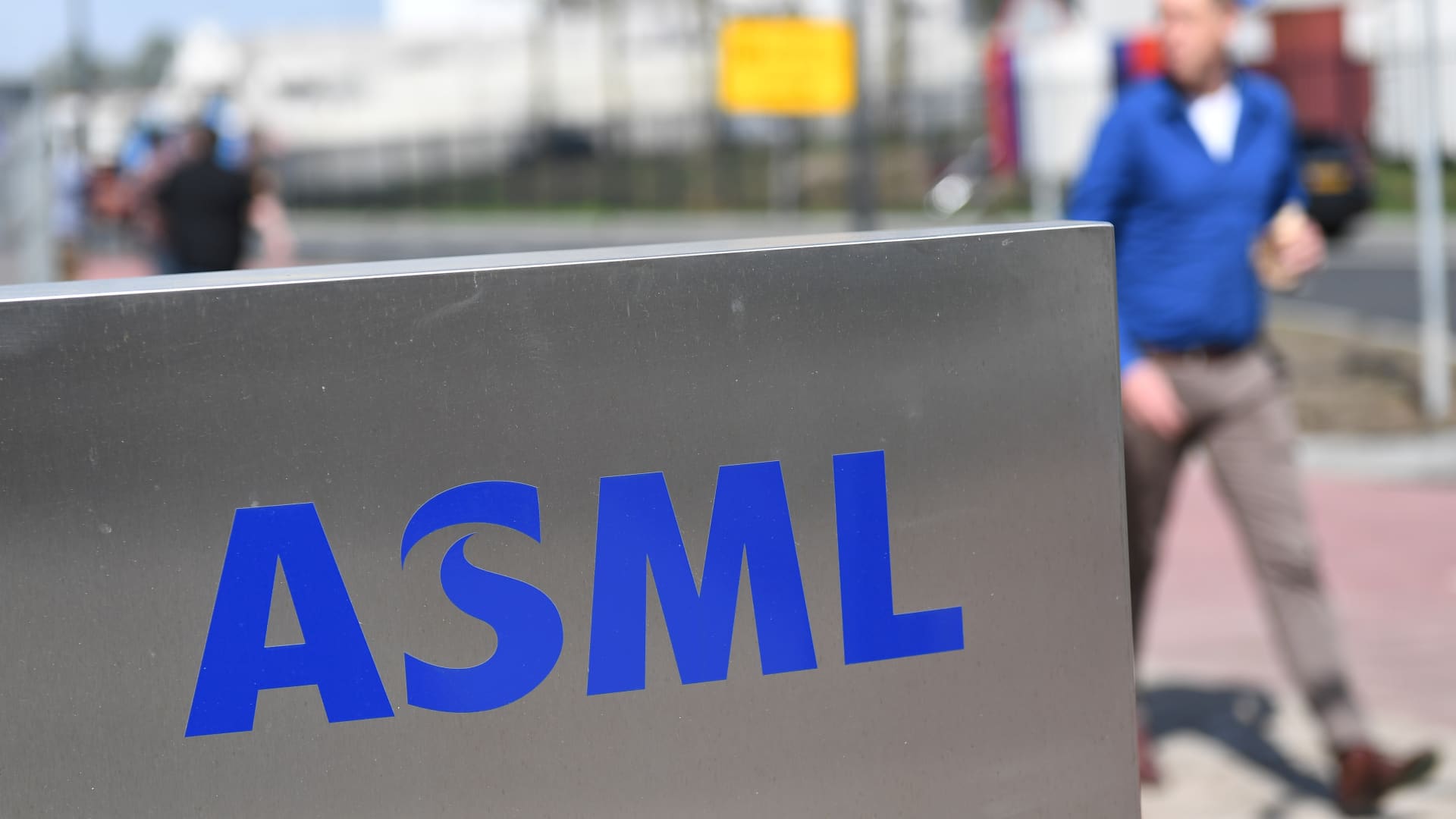Chip equipment firm ASML reported a year-on-year rise in profit in the third quarter and beat analyst estimates, but forecast 2024 revenue will be flat.
ASML is one of the most important semiconductor firms in the world, producing tools known as extreme ultraviolet lithography machines, which are required to manufacture the most advanced chips globally.
ASML shares were down nearly 4% just after 8 a.m. London time, as rising geopolitical concerns offset the profit rise.
Here’s how ASML did in the third quarter versus LSEG estimates:
- Net sales: 6.67 billion euros ($7.1 billion) versus 6.71 billion euros expected
- Net profit: 1.89 billion euros versus 1.8 billion euros expected
Net sales rose 15.5% from the 5.78 billion euro reported in the same period a year earlier. Net profit jumped around 11% from the 1.7 billion euros reported in the same period a year earlier.
Both third-quarter figures marked a decline from second-quarter results.
“The semiconductor industry is currently working through the bottom of the cycle and our customers expect the inflection point to be visible by the end of this year,” ASML CEO Peter Wennink said in a Wednesday statement. “We therefore expect 2024 to be a transition year.”
Wennink added that the company is taking a more “conservative view” of 2024 and expects a revenue number similar to 2023.
“But we also look at 2024 as an important year to prepare for significant growth that we expect for 2025.”
The semiconductor market has had a tough year amid weak demand for products like smartphones and laptops, which these components go into. Companies like Taiwan’s TSMC and Samsung, two of the world’s biggest chip manufacturers and customers of ASML, have cut their capital expenditure this year as a result.
ASML net bookings in the third quarter totaled 2.6 billion euros, a 42% plunge from the previous quarter, as its customers cut back on spending.
Still, ASML has reaffirmed its guidance for net sales to increase 30% year-on-year for 2023.
U.S. chip curbs in focus
The Dutch company has also been caught up in the tensions over technology between the U.S. and China because of the importance of its tools.
In June, the Netherlands — where ASML is headquartered — introduced its own export restrictions on advanced semiconductor equipment, with companies now requiring a government license to take certain technologies abroad.
This came after the U.S. introduced its own sweeping restrictions on technology exports to China, and as Washington urged allies to follow suit.
ASML has maintained that these measures are unlikely to impact its 2023 financial results.
On Tuesday, the U.S. Department of Commerce announced further restrictions to prevent the sale of artificial intelligence chips to China. Washington said these are intended to close the loopholes that appeared after last year’s curbs.
